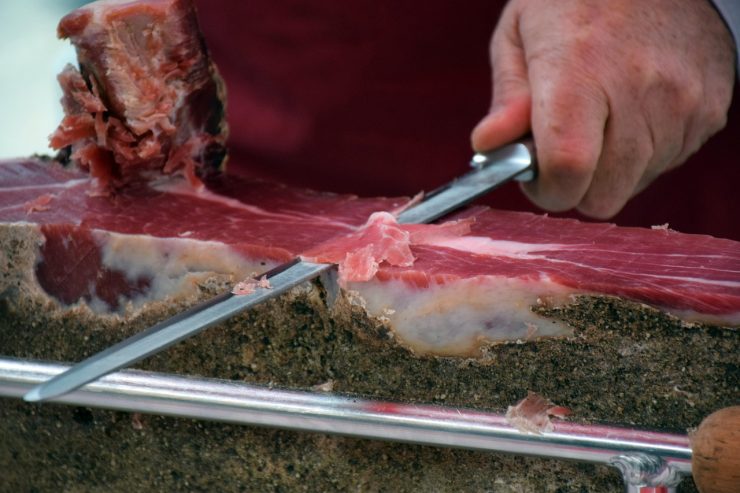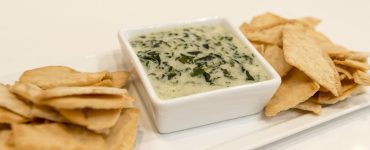Prosciutto may look like a cousin of ham, but it has a distinct character all its own. Unlike sweet, maple-glazed varieties of ham common in the U.S., prosciutto is an Italian dry-cured meat known for its savory flavor and delicate texture. What sets it apart further is its traditional preparation—just high-quality pork, sea salt, and air-curing over many months. That’s it. No sugars, preservatives, or artificial additives, which also means it doesn’t fall under the typical definition of “processed meat.”
In fact, prosciutto carries a “Protected Designation of Origin” status in Europe, meaning authentic prosciutto must come from specific regions of Italy, much like Champagne must come from France. For those following a keto or Paleo-style diet, prosciutto is a fitting choice since it’s naturally free of added sugars and carbohydrates.
Served in paper-thin slices, prosciutto delivers bold flavor in small amounts, making it a flavorful and lighter alternative to traditional bacon or ham. Nutritionally, it’s typically lower in calories, fat, sugar, and salt compared to bacon—and it’s naturally nitrate- and nitrite-free.
Now, pair prosciutto with eggs, and you have a dish that’s simple, satisfying, and packed with protein. But when choosing eggs, quality makes a significant difference.
Eggs come with a wide range of labels, and not all are created equal. Conventional eggs usually come from hens raised in large-scale factory settings, with limited space, artificial lighting, and feed treated with pesticides. These hens are often given antibiotics and hormones, and their living conditions are far from ideal.
Free-range eggs are a slight improvement, but the term can be misleading. These hens may have access to a door that leads outside, but they are often still confined in crowded barns with limited outdoor exposure.
Organic eggs take another step up. These come from hens raised on organic feed without routine antibiotics or hormones. They must have access to the outdoors, but again, that might just be a small enclosed area.
The highest quality tends to be found in pasture-raised eggs. These hens are given space to roam on grassy fields, pecking at bugs, worms, and grubs—their natural diet. They may receive supplemental organic feed but spend most of their time outdoors in fresh air and sunlight.
Nutritionally, pasture-raised eggs tend to be superior. They contain more vitamin A, more vitamin E, higher omega-3 content, and a better omega-6 to omega-3 ratio. Their yolks are typically a deep orange-yellow and have a richer flavor.
The following recipe brings together prosciutto and pastured eggs in a simple, delicious format. These baked egg cups are ideal for a high-protein breakfast or an easy brunch and come together quickly with minimal cleanup.
Prosciutto Spinach Cup Eggs
Serves: 3–6
Prep Time: 10 minutes
Cook Time: 18–20 minutes
Ingredients:
-
Butter (for greasing muffin tin)
-
6–8 thin slices prosciutto
-
1 cup baby spinach or baby kale
-
6 pastured eggs
-
Freshly ground black pepper
-
1 tablespoon chopped chives or green onions
Instructions:
-
Preheat oven to 350°F. Lightly grease a 6-cup muffin tin with butter.
-
Line each muffin cup with a slice of prosciutto, pressing it gently to form a cup shape.
-
Add a few spinach or baby kale leaves to each cup.
-
Crack one egg into each prepared muffin cup. Sprinkle with black pepper.
-
Bake for 18–20 minutes, or until the whites are set but the yolks are still soft. Keep in mind the eggs will continue to cook slightly after removing from the oven.
-
Top with chopped green onions or chives. Let sit for 1 minute to allow the eggs to set.
-
Carefully lift each egg cup out using a butter knife or small spatula. Taste before adding any salt, as prosciutto is naturally salty. Serve warm.
These prosciutto egg cups offer a flavorful, high-protein start to the day—and they’re just as suitable for brunch or a quick lunch. Simple ingredients, easy prep, and nutrient-rich—this is a dish that covers all the bases.











